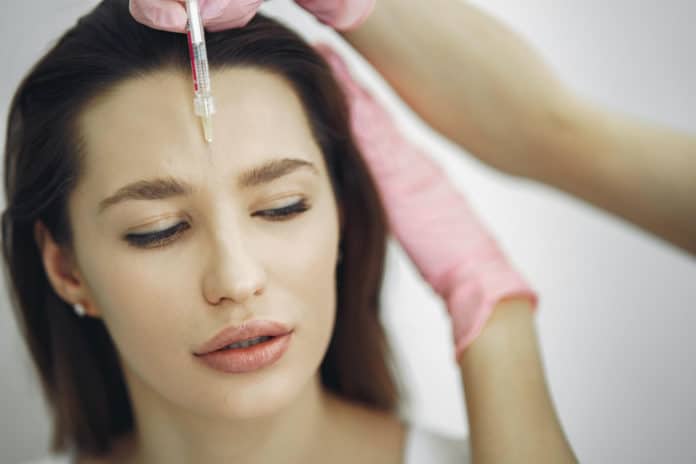Botox injections are commonly used to reduce wrinkles, migraines, muscle spasms, excessive sweating, and incontinence. It can also be used to treat anxiety, suggests a new study.
The study by the scientists at Skaggs School of Pharmacy and Pharmaceutical Sciences at the University of California San Diego, in collaboration with two physicians from Germany, found that people receiving Botox injections at four different sites reported significantly reduced anxiety than patients undergoing different treatments for the same conditions.
Ruben Abagyan, Ph.D. professor of pharmacy, said, “A large number of diverse adverse effects are being reported to the FDA. The main objective usually is to find those harmful side effects that had not been identified during clinical trials.”
“However, our idea was different. Why don’t we do the opposite? Why don’t we find beneficial effects?”
Scientists scoured the database for the absence or reduced frequency of anxiety and anxiety-related disorders as a health complaint. They then compared the data to a control group when taking botox.
Later, scientists were able to observe significant differences between Botox users and patients who received different treatments for the same conditions by using a mathematical algorithm.
They found that the reported anxiety risk was 22 to 72 percent lower in Botox-treated patients for four of eight conditions and injection sites: facial muscles for cosmetic use; facial and head muscles for migraine; upper and lower limbs for spasms spasticity; and neck muscles for torticollis.
A similar study in 2020, using the same database, found, people who received Botox injections reported depression significantly less often than patients undergoing different treatments for the same conditions. Both studies reported a decrease in symptoms regardless of the injection site. Hence, scientists cast doubt on speculation that patients may have felt happier because they had fewer wrinkles or because Botox prevents frowning.
But, scientists think that the specific molecular mechanisms by which Botox reduces depression and anxiety may be different.
Abagyan said, “They may be related, but there are different pathways responsible for anxiety attacks versus depression.”
Scientists theorized possible mechanisms: They may be related, but different pathways are responsible for anxiety attacks versus depression.
Botox is used to treat chronic conditions that may contribute to anxiety, its success in relieving the underlying problem may indirectly also relieve anxiety.
However, further study is required to understand how Botox reduces anxiety. Clinical trials will be necessary to work out the best site and dose to administer the medication specifically for anxiety.
Journal Reference:
- Wollmer, M.A., Makunts, T., Krüger, T.H.C. et al. Postmarketing safety surveillance data reveals protective effects of botulinum toxin injections against incident anxiety. Sci Rep 11, 24173 (2021). DOI: 10.1038/s41598-021-03713-x
